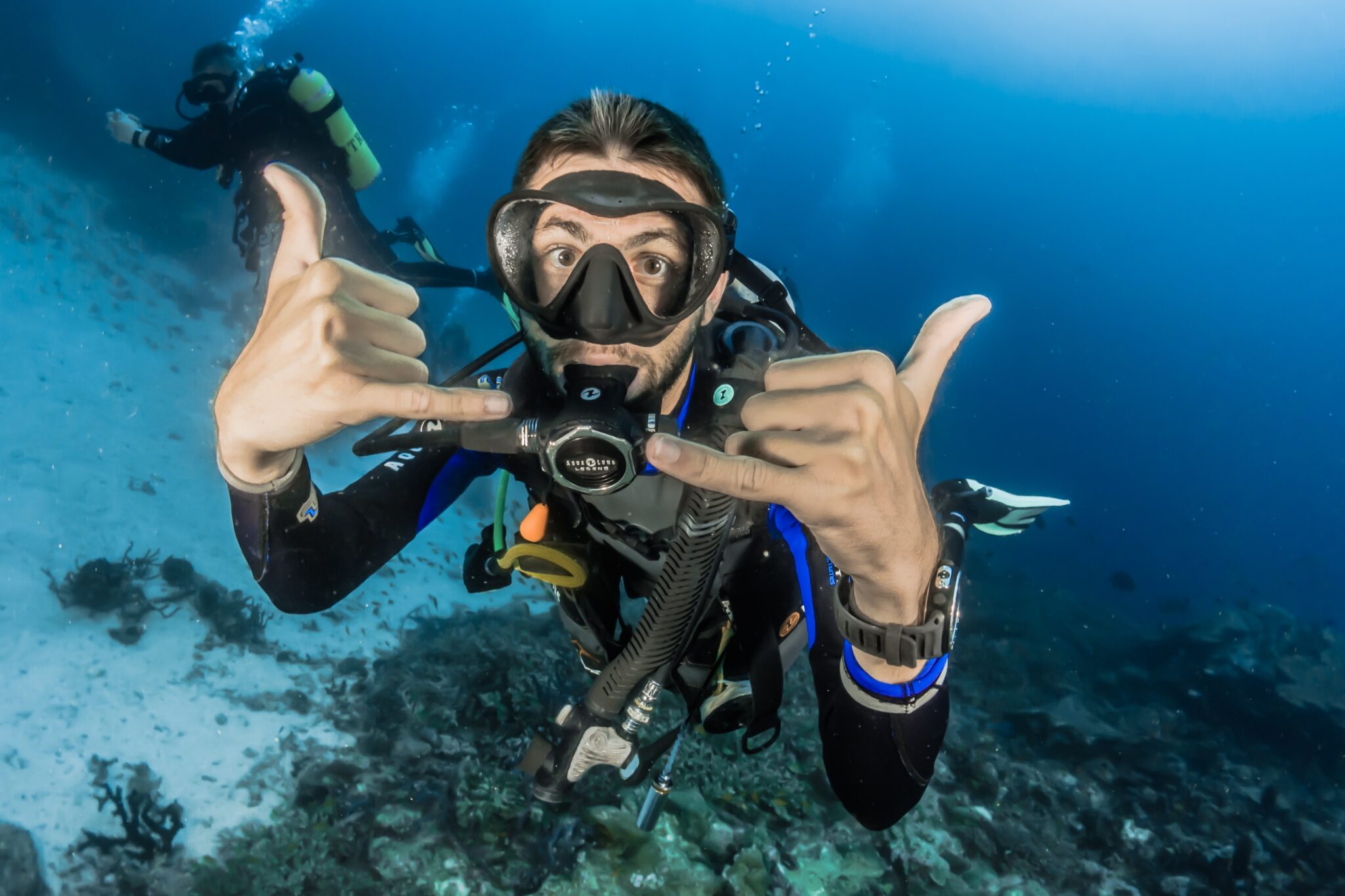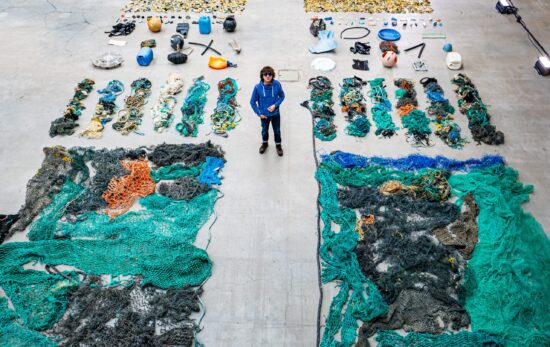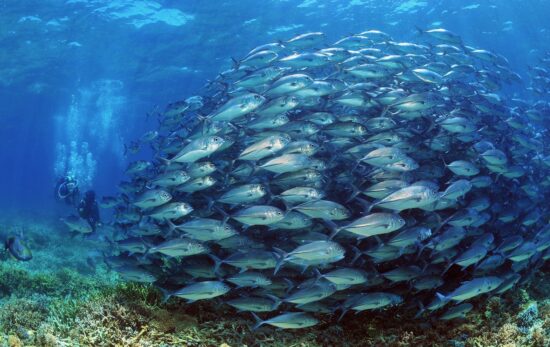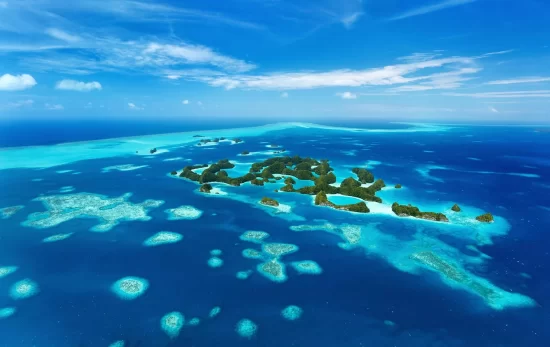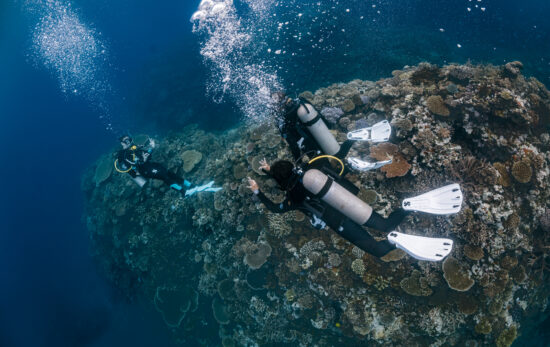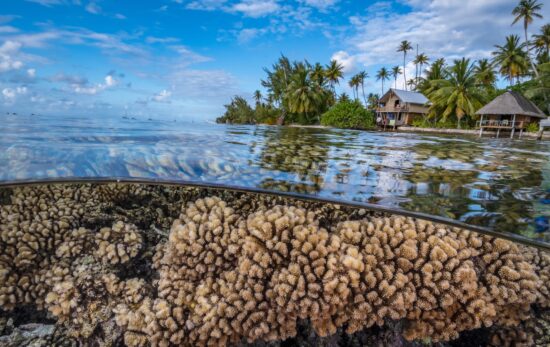The challenges that our ocean faces from plastic pollution and marine debris feel monumental. Indeed, trash litters the majority of our streams, lakes, rivers and seas. Therefore, to tackle such a formidable problem, PADI, PADI AWARE and The Ocean Cleanup have joined forces, embarking on two pilot research projects, one in the Dominican Republic (DR) and one in Malaysia, to inform potential solutions that could be scaled globally.
The Goal
The goal of this groundbreaking collaboration is to create effective, long-term strategies to deal with marine debris in our ocean. This will be accomplished with the diversion of plastic pollution, divers and data.
“In order to rid the world’s oceans of plastic, we need data – lots of it. The partnership with PADI helps us map the sources, transport and fate of plastic, so we can do a better job locating and removing it,” said Matthias Egger, The Ocean Cleanup’s Lead Ocean Field Scientist.
Furthermore, “The marine debris and plastic pollution problem needs to be solved by preventing items entering the ocean in the first place, so PADI AWARE is partnering with The Ocean Cleanup to monitor the impact of their river interceptors in Malaysia and the Dominican Republic,” said Ian Campbell, PADI AWARE Associate Director of Policy and Campaigns.
Campbell heads up PADI AWARE marine debris work. The nonprofit and sister company PADI launched their Blueprint for Ocean Action in 2022, a shared conservation framework which includes five goals supporting the global agenda to protect 30% of the ocean by 2030. By connecting this blueprint to PADI Members and Divers around the globe taking ocean saving actions, there is greater potential for scalable and meaningful action to help restore balance in the ocean. Action-focused partnerships with organizations like The Ocean Cleanup are focused on local action that can drive global impact, and in this case help drive towards the Blueprint goal to reduce the level of marine debris in target countries by 50% by 2030.
How it Works: Combining Technology and Manpower
Diversion of Plastic Pollution
According to PADI AWARE research, 80% of debris in our oceans comes from land-based sources. These include trash that washes down drains and rivers and comes off of poorly-managed dumps and industrial centers. Therefore, The Ocean Cleanup will deploy a variety of ‘Interceptor Solutions’ in rivers to collect and extract floating plastic before it can reach the ocean, explained Egger. In this way, they hope to prevent 80% of riverine plastic pollution from entering the ocean in the first place.
Divers and Data
Now, comes the fun part – for divers like me and you!
“PADI’s army of citizen scientist-divers will act as the eyes on the seafloor, monitoring marine debris levels,” Campbell said.
For example, divers can conduct Dives Against Debris and other debris surveys nearby new Interceptors and connected ocean areas. By doing so at the surface and underwater – prior, simultaneously and after new Interceptor deployment – divers collect vital data on marine debris levels. In fact, the Dive Against Debris program can generate long-term datasets on 100 different debris items, Campbell said. This data can show how effective an Interceptor is at preventing plastics from entering the water column. Then, governments can evaluate the efficacy of these and other plastic prevention measures.
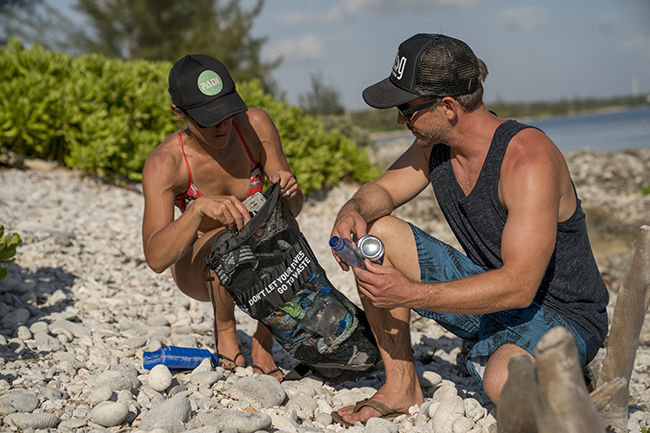
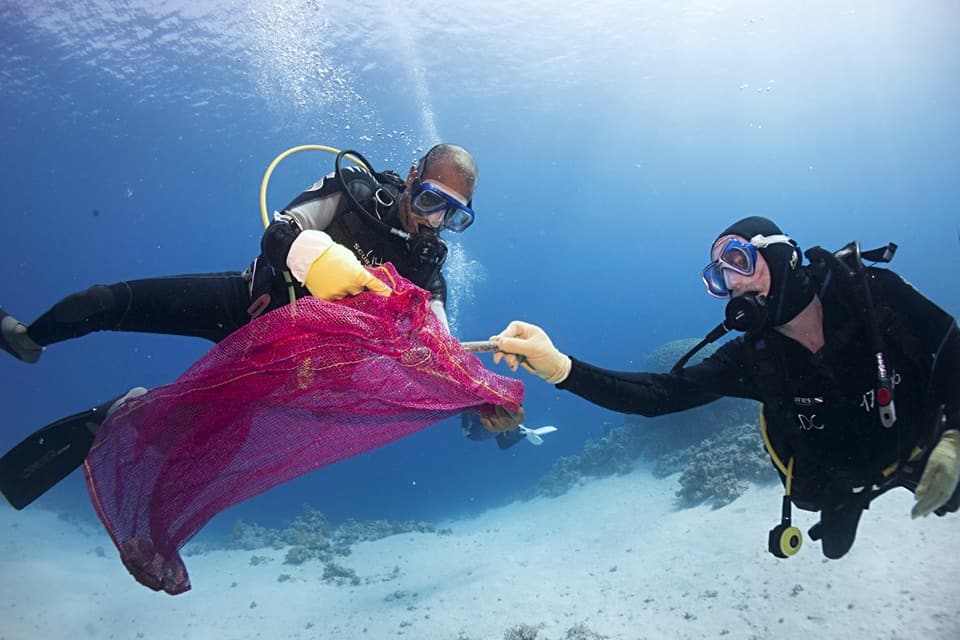
The Harms Caused by Debris
The damage to the environment done by debris varies by its type, Egger added. For example, highly buoyant items like bottles and food containers tend to wash back onshore near river mouths. Moreover, along shorelines, these break down due to the elements into micro and nano plastics, he explained. Then, these often wash out again into the ocean, where animals ingest them into the marine food chain.
On the other hand, less buoyant objects like diapers and plastic bags tend to sink to the coastal seabed, where they can create oxygen shortages in important seafloor ecosystems like corals, mangroves and seagrass, Egger said. Plastic debris can also act as a vector, introducing pathogens (i.e., harmful microorganisms) that lead to disease in coral reefs, he said.
Why Malaysia and the Dominican Republic
The two pilot projects are located in countries where The Ocean Cleanup already has Interceptor Originals in place: Malaysia and the DR. These projects create the opportunity to establish a monitoring and research framework to evaluate the impact of cleanup efforts on the local and regional environments, Egger said. The two projects also allow for fine-tuning of the collaboration before scaling up to a global scale, he added.
What They’ve Found
Under this program, community dive teams in Malaysia and the DR have led local efforts to collect marine debris data at and below the surface.
“It is mostly waste from take-out consumer goods (plastic bottles, plastic bags, food containers, cutlery, cups, wrappers) and household waste (diapers, clothing, …),” The Ocean Cleanup’s pollutants expert said. Juanita Seino, with PADI AWARE Programs and Operations Americas, coordinates the DR project. She said, “Back to the data, personally, I can tell you there are lots of glass beverages, plastic cups and cloth items. Very touristy trash from party boats and such … .”
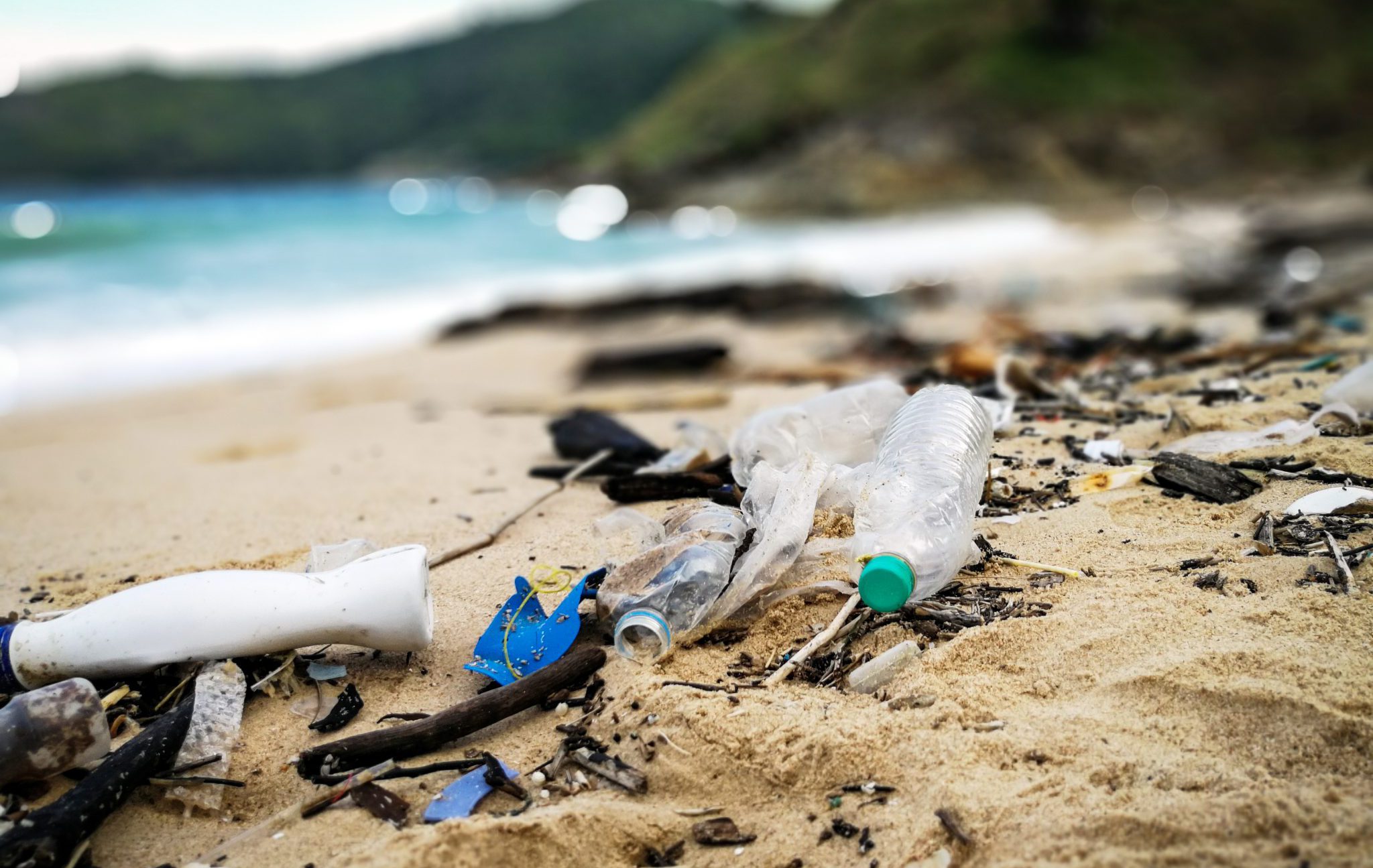
What Debris Data Shows
By knowing what’s out there and the potential harm posed to local environments, divers in Malaysia and the DR hope to shape their governments’ policies on waste management and marine debris.
For now, “Once we have analysed the data submitted by the dive community, we can begin to determine the trends impacting the individual locations.” Seino said. “There has been willingness and appetite from PADI operators and divers to get directly involved in conservation and protection because they know they are taking actions that could directly impact the health of the local aquatic environment – and of course, their own livelihoods.”
“We are powerful as an industry because only divers can safely remove underwater debris [without causing] further damage to the ecosystem being cleaned,” said Juanita Seino, PADI America’s Programs and Operations. “… [S]cuba diving is more than an extreme or luxury sport.”
Spotlight on the Dominican Republic: New Opportunities
Analysis of the DR data will begin in April as the project hit the one-year milestone in March – the time parameter for each research project that assures increased accuracy of the data. In fact, the DR was a ‘blank slate’ within the PADI AWARE citizen-science database before this project started. Therefore, the program was built from scratch, and the PADI Dive Operators who signed on for the project are helping to create a model for future projects, while also receiving supplemental income for their participation.
“The hope is to have a business approach to the work,” Seino said. Thus, the program funds training for PADI operators on Dives Against Debris. It also includes branded bags and slates for certified instructors. In this way, operators can incorporate conservation courses into their business model and financially benefit from teaching them to divers. The community and the oceans benefit, and dive shops provide quality and consistent citizen-science data to the collaborative effort.
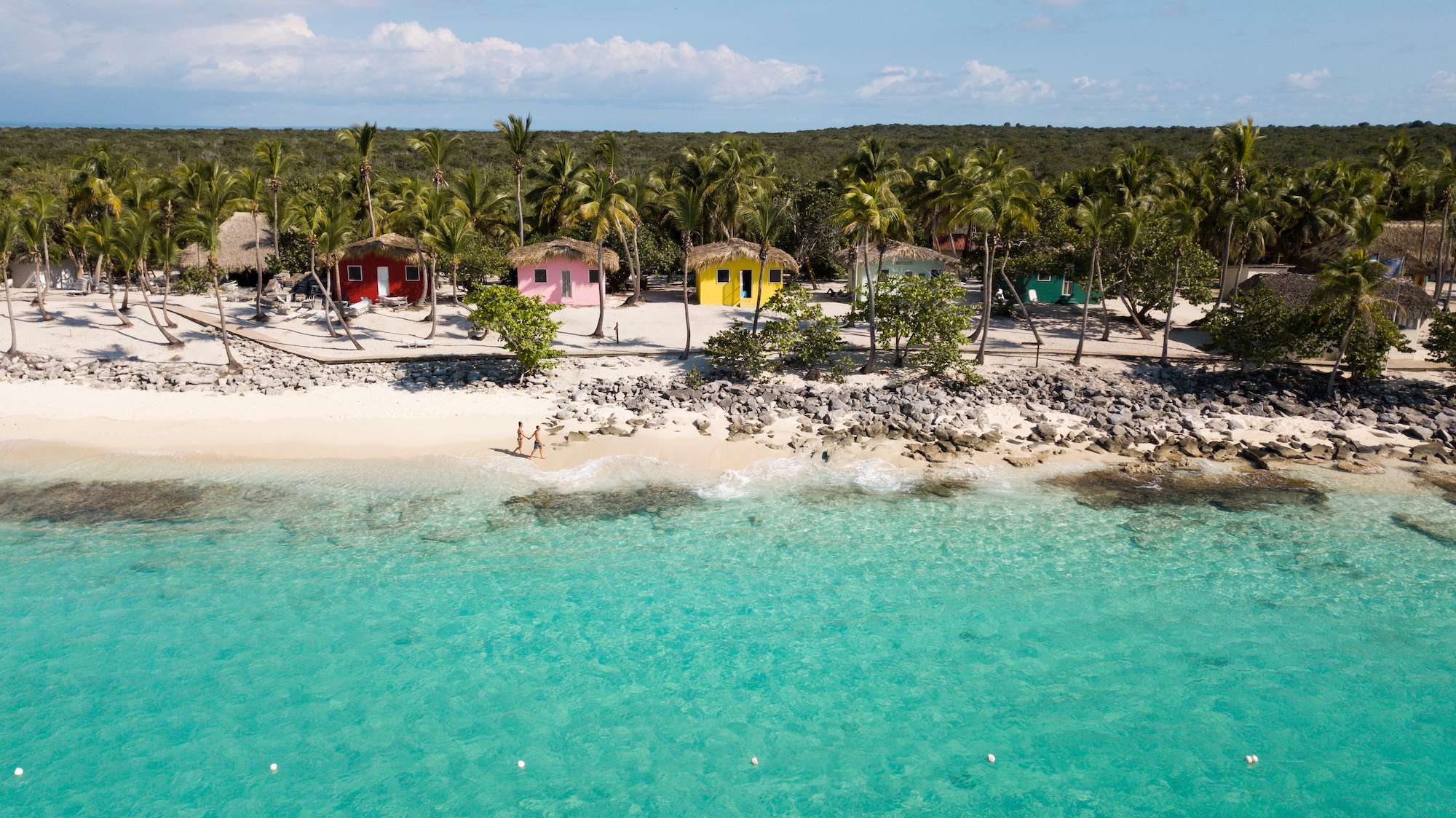
What’s Next?
“Ultimately, a successful campaign will see marine debris volumes fall at the Dive Against Debris sites due to innovative mitigation methods such as The Ocean Cleanup’s river interceptor project,” Campbell said.
At the end of the day, the Malaysia and DR projects are pilots. If successful, the PADI x PADI AWARE x The Ocean Cleanup partnership will scale globally – ideally to any country where PADI operates and where there is need.
